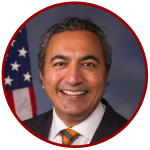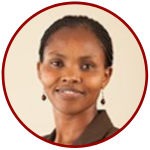HIV/AIDS and the Longevity Dividend: Strengthening Health Systems and Advancing Equity in Aging Societies
Event description
Just as individuals are aging with HIV, so too are entire societies. HIV treatment has reversed drops in life expectancy in many countries where PEPFAR and other global HIV/AIDS programs have worked. With this astonishing public health success comes a generational question: Will these added years of life translate to added years of health and well-being? Or will they bring chronic physical and mental conditions, with the greatest burden falling on socially excluded groups and those lacking access to integrated and person-centered health care?
As countries move toward their goal of ending AIDS and as the US Congress debates the reauthorization of PEPFAR, this panel will explore how global HIV/AIDS programs can support health systems in AIDS-affected countries to adapt to the needs of aging populations. We will also examine how to further the global health equity agenda by overcoming legal and structural barriers to the integration of health and social care for diverse aging populations.
Opening remarks will be provided by Congressman Ami Bera, M.D. (CA-06), Senior Member of the House Foreign Affairs Committee in the U.S. House of Representatives. He will be joined by a host of fantastic speakers.
The dialogue will be moderated by Jonathan Cohen, Director of Policy Engagement at the USC Institute on Inequalities in Global Health with a welcome by Sofia Gruskin, Director of the USC Institute on Inequalities in Global Health.
The webinar is hosted by the USC Institute on Inequalities in Global Health.
Please join us on Thursday, September 28th at 9:00 am PT/12:00 pm ET.
Opening remarks by Congressman Ami Bera, M.D., Senior Member of the House Foreign Affairs Committee in the U.S. House of Representatives (CA-06)

Congressman Ami Bera, M.D. has represented Sacramento County in the U.S. House of Representatives since 2013. The 6th Congressional District is located just east and north of California's capitol city, Sacramento, and lies entirely within Sacramento County.
Representative Bera is currently a member of the House Foreign Affairs Committee, where he serves as Chairman of the Subcommittee on Asia, the Pacific, Central Asia, and Nonproliferation. He is also a member of the House Permanent Select Committee on Intelligence and the Select Subcommittee on the Coronavirus Pandemic. Congressman Bera is also a member of New Democrat Coalition, a group of over 100 forward-thinking Democrats who are committed to pro-economic growth, pro-innovation, and fiscally responsible policies.
Speakers:

Dr. Catherine Godfrey is an infectious disease physician with extensive experience in HIV, TB, and STIs. She is the senior technical advisor for adult care and treatment at the Office of the Global HIV AIDS Coordinator at the Department of State and leads several high profile workstreams including the PEPFAR’s response to COVID-19, mortality in the PEPFAR cohort, approaches to interruptions in treatment, infection protection and control, as well as differentiated service delivery for adults. She has published extensively on treatment issues for people living with HIV and is the recipient of awards which reflect contributions to women’s health and to the HIV affected community.

Dr. Jepchirchir Kiplagat is a Lecturer at Moi University School of Public Health and the Associate Director of Research at AMPATH Kenya. She is a PhD graduate from School of Public Health, University of the Witwatersrand, Johannesburg, South Africa. Jepchirchir’s PhD work focused on HIV and aging and identified key challenges facing older adults living with HIV that need consideration in the fight to end HIV by 2030. She holds a Master’s Degree in Public Health (Epidemiology and Disease Control) from Moi University and an undergraduate Degree in BSc, Environmental Health from the same institution. Jepchirchir completed her Fogarty Research Fellowship (2021-2022) with the Northern Pacific Global Health Consortium and PostDoc Fellowship (2022-2023) with the Consortium of Advanced Research Training in Africa (CARTA). She is a recent awardee of the Emerging Global Leader Award (K43) through the NIH-Fogarty International Center (FIC) and National Heart, Lung and Blood Institute (NHLBI) with her research focusing on developing community models to promote medication adherence for older people living with HIV and hypertension.

Dr. Stephen Waititi studied Medicine at Makerere University, Kampala, Uganda and went on to become a medical officer, Rubaga Hospital, Kampala from 1985-1988. He practiced medicine privately from 1988-2004 at Entebbe Road clinic and JOY Medical Centre Ndeeba, Kampala. He previously worked at Mildmay Uganda, a leading HIV and AIDS service organization. An HIV activist and ardent advocate for improved and sustainable health for all, Dr. Watiti believes with hindsight that he acquired HIV between 1985 and 1986 while working as a junior medical officer. In 2000, he began ARVs after contracting tuberculosis, cancer (Kaposi’s sarcoma), and meningitis. In 2006, he started his weekly column on HIV in New Vision, Uganda’s leading daily newspaper. His column appears Mondays under the heading: “Towards zero: with Doctor Watiti”. He has published two books on HIV: “HIV and AIDS: 100 Commonly Asked Questions” and “Conquering HIV and AIDS: My personal experience of living with HIV”. The Tearfund UK has recognized him as an HIV Champion and he has won awards from Uganda’s Parliament, Action Aid International, and International Christian Medical and Dental Association for his outstanding contribution towards the fight against HIV in Uganda and beyond. His current advocacy work focuses on HIV and aging.
Moderator:

Prof. Jonathan Cohen joined USC in 2021 as Director of Policy Engagement for the Institute on Inequalities in Global Health and Clinical Professor for the Division of Disease Prevention, Policy and Global Health at the Keck School of Medicine. An internationally recognized expert in health and human rights, Cohen joined USC from the senior leadership of the Open Society Foundations, where he directed the foundation’s $39M public health portfolio and chaired its leadership committee advancing diversity, equity and inclusion. In his sixteen years at Open Society, Cohen directed funding and advocacy efforts to promote health and human rights in over forty countries. His work is widely credited with helping to establish human rights norms and principles on issues including access to medicines, harm reduction, and palliative care. He is a 2022-2023 Health and Aging Policy Fellow in the Office of U.S. Senator Ben Cardin (D-MD).
Tickets for good, not greed Humanitix dedicates 100% of profits from booking fees to charity


